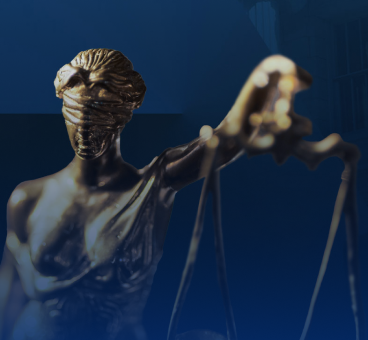
Understanding Florida’s right of way laws is essential for safe travel. These rules determine who must yield in various traffic situations. Failing to follow right of way laws can lead to accidents, causing serious injuries, property damage, and legal disputes.
Whether at intersections, crosswalks, or while merging, knowing who has the right of way helps prevent collisions. However, when accidents do occur, determining who was at fault can be complicated.
This article explores Florida’s right of way laws, common violations, and how these laws impact liability and compensation in personal injury cases. If you’ve been in an accident because of a right of a way violation, a Florida car accident lawyer may be able to help.
What Are Florida’s Right of Way Laws?
In Florida, “right of way” refers to the legal precedence one vehicle or pedestrian has over another in specific traffic situations. However, in Florida, these laws can be complicated, with many relying on a “first come, first serve” type of principle. Key aspects include the following:
- Intersections: According to Florida Statutes § 316.123, drivers must yield to vehicles already in the intersection or those arriving first. At four-way stops, the first vehicle to stop should proceed first; if two vehicles arrive simultaneously, the driver on the left yields to the driver on the right.
- Pedestrians: Motorists are required to yield to pedestrians at crosswalks and intersections. Pedestrians should not suddenly leave a curb or other safe place. Pedestrians should also always obey all traffic lights and walk signs. If crossing mid-block without a crosswalk, pedestrians must yield the right of way to vehicles on the roadway.
- Emergency Vehicles: Upon the approach of an authorized emergency vehicle with audible and visual signals, drivers must yield the right of way and immediately drive to a position parallel to, and as close as possible to, the right-hand edge or curb of the roadway, clear of any intersection, and stop until the emergency vehicle has passed.
- Merging onto Highways: Vehicles merging onto a freeway or highway must yield the right-of-way to existing traffic on the road.
Understanding these laws is necessary, as failure to yield can lead to collisions and legal consequences. If you’re involved in an accident where the right of way is disputed, consulting with a Florida personal injury lawyer can help protect your rights.
Determining fault after an accident where the right of way is in question can be complex. However, your lawyer can help by investigating the incident, gathering evidence, and advocating on your behalf to ensure you receive fair compensation for your injuries.

What Happens When Florida’s Right of Way Laws Are Violated?
Violations of right of way laws in Florida often lead to serious traffic accidents. Common scenarios include drivers failing to yield at intersections, neglecting to stop for pedestrians in crosswalks, or improperly merging onto highways. Such actions can result in various types of collisions, including side-impact (T-bone) crashes, rear-end collisions, and accidents involving pedestrians or cyclists.
Potential Injuries From Right of Way Accidents
Accidents stemming from right of way violations can cause a range of injuries, such as:
- Whiplash: Whiplash is a neck injury caused by rapid back-and-forth movement, commonly resulting from rear-end collisions.
- Fractures: Broken bones, including collarbone and foot fractures, often occur due to the impact forces in vehicle collisions.
- Concussions: Traumatic brain injuries (TBI) caused by a blow to the head can happen during car accidents.
- Internal Injuries: Damage to internal organs may occur, especially in high-speed impacts or when seat belts are not used properly.
Beyond physical injuries and their associated financial costs, victims may face other losses, including lost income, pain and suffering, and more.
How Do Right of Way Violations Impact Personal Injury Claims?
Violations of right of way laws can significantly influence personal injury claims by helping to establish negligence. However, challenges may arise in these cases:
Disputes Over Fault
Determining who violated the right of way can be complex, especially in intersections without clear signage or signals. Conflicting witness statements and lack of evidence can complicate fault determination. Your car accident attorney may seek out harder-to-obtain evidence, such as from traffic cameras or business security cameras.
Comparative Negligence in Florida
Florida follows a comparative negligence system. Under Florida Statutes § 768.81, compensation can be lowered if the injured party is found partially at fault. For instance, if both drivers contributed to the accident, the compensation awarded may be adjusted based on each party’s degree of fault. Your lawyer will gather evidence and build a case to fight back against claims that you were partially to blame for your accident.
Insurance Company Tactics
Insurers may attempt to minimize payouts by disputing liability or downplaying the severity of injuries. They might argue that the injured party shares responsibility, thereby reducing the claim’s value. Your motor vehicle accident lawyer can help substantiate your claims by consulting experts.

What to Do If You’re in an Accident Involving a Right of Way Violation
If you’re involved in a right of way accident, taking the right steps can protect your health and legal rights:
- Seek Medical Attention: Injuries can worsen over time if left untreated.
- Call the Police: A police report helps document the accident and determine fault.
- Gather Evidence: Take photos, collect witness information, and note traffic signals or signs.
- Notify Your Insurance Company: Report the accident but avoid admitting fault. Your lawyer can handle communications with insurance adjusters on your behalf.
- Consult a Lawyer: A personal injury attorney can help establish liability, negotiate with insurers, and pursue fair compensation.

How a Florida Car Accident Attorney Can Assist in Right of Way Cases
Managing a right of way accident claim can be complex for an accident victim recovering from their injuries, especially when fault is disputed. A personal injury lawyer can:
- Investigate the Accident: They will gather evidence, analyze traffic laws, and consult experts.
- Handle Insurance Negotiations: They can prevent insurers from undervaluing or denying claims.
- Prove Liability: They will establish fault using police reports, witness testimony, and surveillance footage.
- Maximize Compensation: They will advocate for injury victims to receive fair compensation for medical bills, lost wages, and pain and suffering.
Having legal representation can make the difference in securing a favorable outcome after a right of way accident.
Call GED Lawyers Following Your Right of Way Accident
The car accident lawyers with GED Lawyers work on contingency, so you pay nothing unless they win.
Recover from your injuries in peace. Contact GED Lawyers for a free initial consultation about your case.
